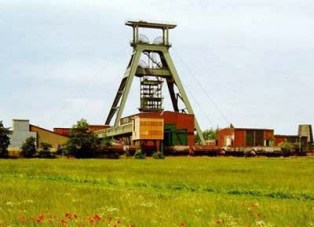Germany's first disposal site for low- and intermediate-level radioactive waste is set to go ahead after the Federal Administrative Court ended years of legal argument and delay. The plan to convert the Konrad site, a former iron ore mine in Lower Saxony, and to use it as a final repository, was first approved by the state environment ministry in 2002 after almost 20 years of proceedings. Local communities and farmers appealed against the licensing decision. Those lawsuits were dismissed in March 2006, without leave for further appeal, but subsequent appeals were made against the denial of leave to appeal. These were finally dismissed on 3 April, exhausting the legal process and rendering the site license to convert the Konrad mine into a final repository incontestable.
The plan to convert the Konrad site, a former iron ore mine in Lower Saxony, and to use it as a final repository, was first approved by the state environment ministry in 2002 after almost 20 years of proceedings. Local communities and farmers appealed against the licensing decision. Those lawsuits were dismissed in March 2006, without leave for further appeal, but subsequent appeals were made against the denial of leave to appeal. These were finally dismissed on 3 April, exhausting the legal process and rendering the site license to convert the Konrad mine into a final repository incontestable.
The Konrad site will hold up to 303,000 cubic metres of waste - some 95% of the waste volume with 1% of the radioactivity from Germany's nuclear industry. It may be operational about 2010. The low- and intermediate-level waste includes items like filters, tools, chemical wastewater, sludges/suspensions, cleaning materials and contaminated metals and non-metals. The waste undergoes treatment to reduce its volume before being packed into drums for disposal.
Lower Saxony environment minister Heinrich Sander welcomed the court ruling, saying "There's finally legal certainty and clarity." However, federal environment minister Sigmar Gabriel said the ruling would not affect another lengthy and ongoing German waste debate, on proposals for a high-level waste repository at Gorleben.
Further information
WNA: Nuclear power in Germanyinformation paper




_91467.jpg)
_47120.jpg)
_16439.jpg)






